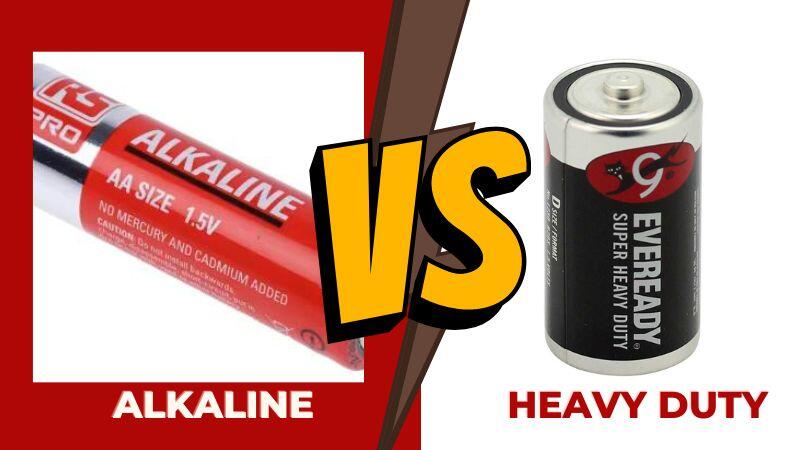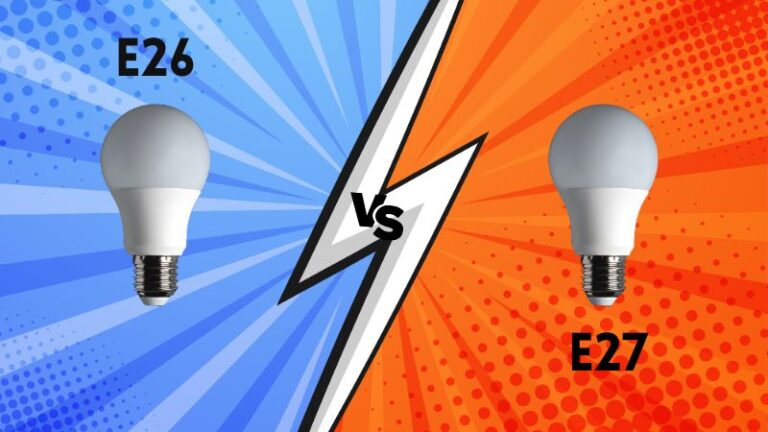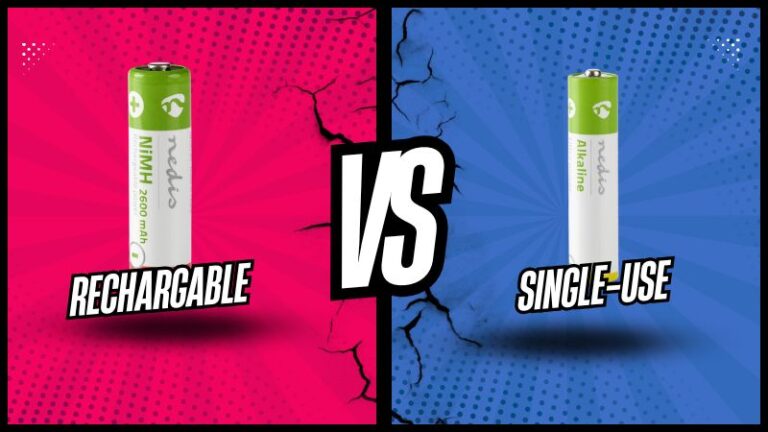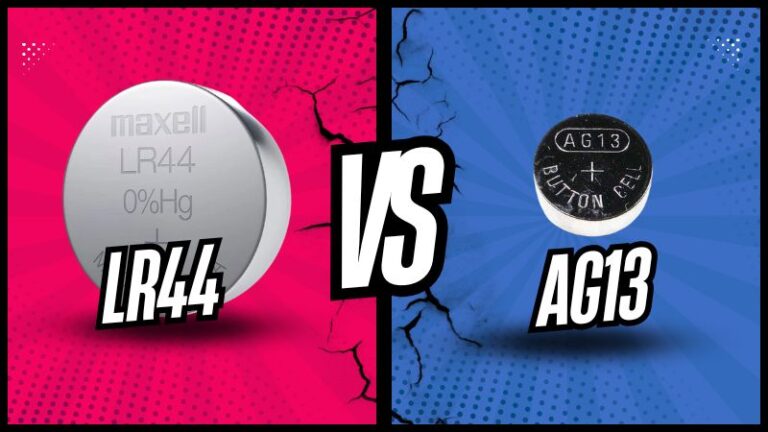When it comes to powering your devices, alkaline and heavy-duty batteries are two common options available in the market. Both types of batteries are designed to provide power to different electronic devices, from remote controls and flashlights to children’s toys and more. However, there are significant differences between alkaline and heavy-duty batteries in terms of their performance, cost, and lifespan. In this article, we will explore the differences between alkaline and heavy-duty batteries to help you make an informed decision about which type of battery is best suited for your needs.
Differences Between Alkaline and Heavy Duty Batteries
Alkaline Batteries |
Heavy-Duty Batteries |
|
|---|---|---|
| Chemistry and Construction | Alkaline electrolyte (usually potassium hydroxide), manganese dioxide cathode, zinc anode | Zinc anode, carbon cathode, ammonium chloride electrolyte |
| Performance | Higher voltage output, longer lasting, higher energy density, better for high-drain devices | Lower voltage output, shorter lifespan, lower energy density, better for low-drain devices |
| Cost | More expensive | Cheaper |
| Lifespan | Longer lasting, affected by factors such as temperature and storage conditions | Shorter lifespan, may still provide sufficient power for low-drain devices |
| Environmental Impact | Contains heavy metals that can be harmful if not properly disposed of | Contains heavy metals that can be harmful if not properly disposed of |
| Storage | Can be stored for up to 10 years | Should not be stored for more than a year |
| Temperature Range | Performs well in a wide range of temperatures | Performs poorly in cold temperatures |
| High-Drain vs Low-Drain Devices | Best suited for high-drain devices that require a lot of power | Best suited for low-drain devices that require less power |
| Applications | Digital cameras, portable speakers, power-hungry electronics, etc. | Remote controls, smoke detectors, low-power devices, etc. |
Chemistry and Construction
Alkaline batteries are known for their long life, high energy density, and reliable performance. They are made of an alkaline electrolyte, which is typically a potassium hydroxide solution, and a manganese dioxide cathode. The anode is usually made of zinc, which is the metal that undergoes oxidation to produce electricity. Alkaline batteries can provide a constant voltage output until they are nearly fully depleted, and they typically last longer than heavy-duty batteries.
Heavy-duty batteries, on the other hand, are a type of zinc-carbon battery that is cheaper and less durable than alkaline batteries. Heavy-duty batteries have a zinc anode, a carbon cathode, and an electrolyte that is typically an ammonium chloride solution. They are less efficient at converting chemical energy into electrical energy and typically have a shorter lifespan than alkaline batteries. Heavy-duty batteries also tend to lose their voltage output over time, and they may not perform as well in cold temperatures or high-drain applications.
Check also – Alkaline vs Zinc-Carbon Batteries: What are the Differences?
Performance
When it comes to performance, alkaline batteries are generally superior to heavy-duty batteries. Alkaline batteries can provide a higher voltage output and maintain their voltage output for longer periods of time than heavy-duty batteries. They also have a higher energy density, which means that they can store more energy per unit of weight or volume. This makes them ideal for high-drain devices like digital cameras, portable speakers, and other power-hungry electronics.
Heavy-duty batteries, on the other hand, are best suited for low-drain devices that require less power. These might include remote controls, smoke detectors, and other low-power devices that are used infrequently. Heavy-duty batteries are less expensive than alkaline batteries, but they do not last as long or provide as much power. They also tend to perform poorly in cold temperatures or high-drain applications.
Cost
The cost of batteries is an important consideration for many consumers, and there is a significant difference in cost between alkaline and heavy-duty batteries. Alkaline batteries are typically more expensive than heavy-duty batteries, but they offer better performance and longer life. Heavy-duty batteries are cheaper, but they may need to be replaced more frequently, which can ultimately lead to higher costs over time. The cost difference between the two types of batteries may be negligible for low-drain devices that do not require frequent battery replacement, but it can add up for high-drain devices that consume batteries quickly.
Lifespan
The lifespan of batteries depends on several factors, including the type of battery, the device in which it is used, and the way it is stored. Alkaline batteries generally last longer than heavy-duty batteries, but their lifespan may be affected by factors such as temperature and storage conditions. Heavy-duty batteries may not last as long as alkaline batteries, but they may still provide sufficient power for low-drain devices that are used infrequently.
Conclusion
In conclusion, both alkaline and heavy-duty batteries have their advantages and disadvantages. Alkaline batteries offer better performance, longer life, and higher energy density, making them ideal for high-drain devices that require a lot of power. Heavy-duty batteries are cheaper and better suited for low-drain devices that require less power. Ultimately, the choice




